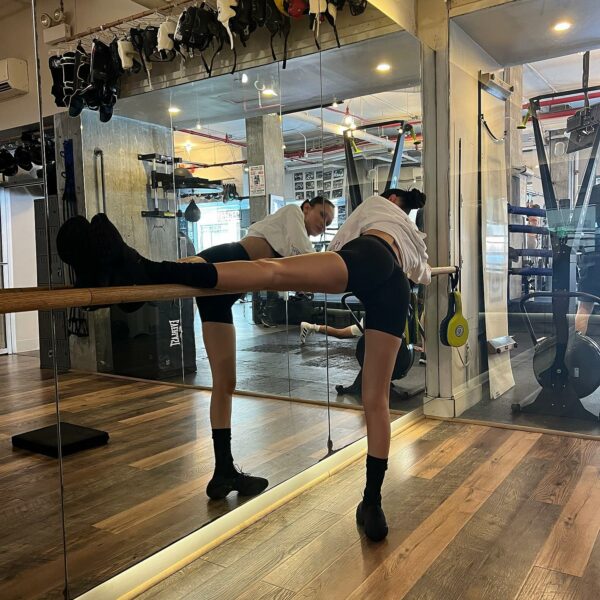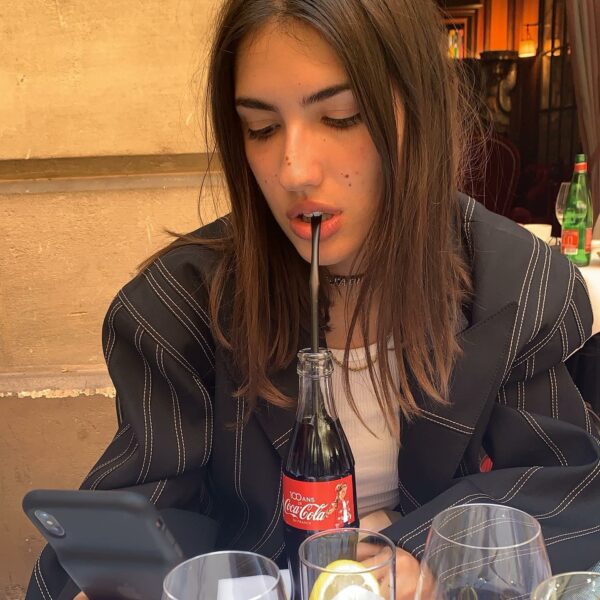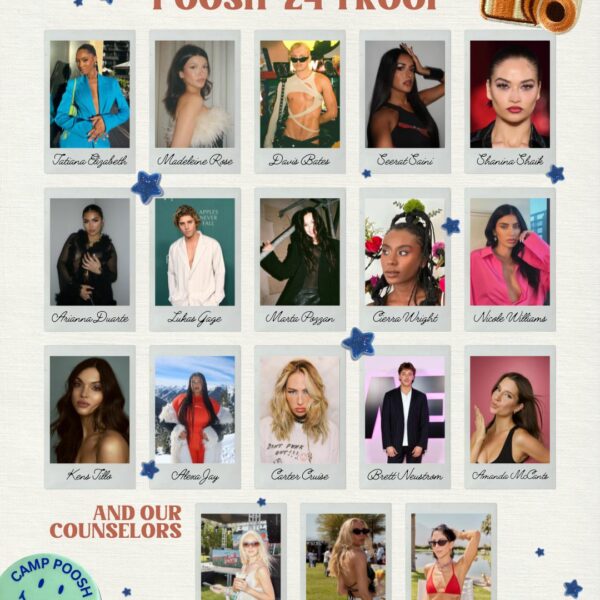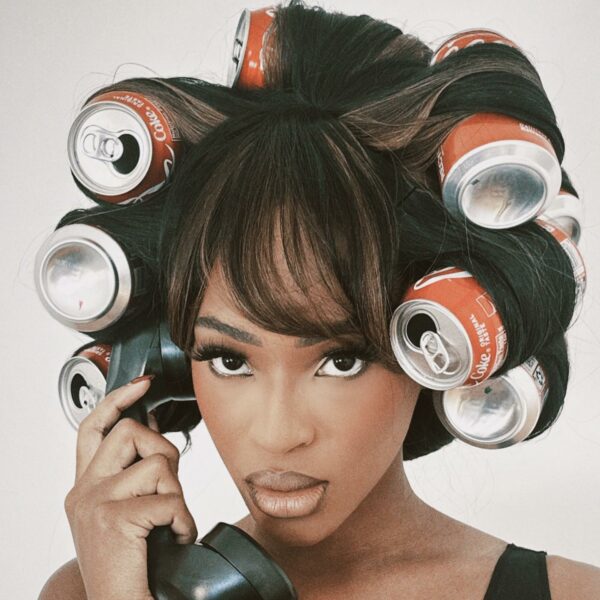I have caught myself doing this too at some point (more than once, duh!). I’m not proud of it, but it almost seems like the only way to communicate with certain people who are not there to ask you to be honest or to be yourself—they just want the fake version of it. Why? It’s less compromising, less risky, less intimate, and simply easier, and it does not require any sort of intellectual or even minimal emotional engagement. The last part, in fact, scares the hell out of people, and it is an aspect of social interactions that I have a very hard time understanding, because all I crave is that real, deep, and special connection with someone. When I connect with someone at that level, I just feel alive and human. And let’s be honest, we’re all guilty of fearing that as much as we desire it; that is why we keep running away from it. There’s a strange comfort in avoiding saying what we actually want to say.
I’ve always felt there wasn’t a point in talking to people about generic things like the weather, work, or everyday nonsense. I still feel very awkward doing so, but I am trying to be better at it because I know it’s a big part of how our society works. Although I promise the minute you show someone (even a stranger) you can connect at a deeper level, their inner light turns on; you can see it in their eyes that they’re craving a human exchange. They may randomly start telling you their life story because they feel like they can, and that has made my day many times. For me, I’m either invested in someone as a friend, creatively, or as a partner and I want to know everything about them, or I’m not going to fake being interested at all. Meaning, why engage with someone halfway? It’s that “halfway” of life that I believe should be rethought.
For example:
“Let’s get drinks next week.” / “Done!” – Never heard from him again.
“Let’s do something fun this weekend.” / ‘”Yeah, I’m in!” – I already have plans, but I’m still going to say YES because why not, I might find something better to do.
“I just met him. Oh, he’s so nice!” – Wait, you actually don’t know the person yet. What if he’s not nice and just acts like it to impress you?
“I’m looking for something serious at this point. I’ve done the whole LA dating thing. I want to connect with someone now.” – Do you really want to connect with someone, or you’re just announcing it so boldly to convince yourself/the other person?
It’s the fake things we tell ourselves to feel better about our decisions or the lack of intent to make any actual plans. When you know the right thing to say, or at least the right thing for you that will ultimately make you feel better, you might as well just go for it right away.
Why do we tell ourselves and others half-truths? Many reasons. Fear is the biggest one. Of what, exactly? Of judgment. People are so fast at drawing conclusions about something or someone that when we open up and share our thoughts with our friends, we fear we’re going to be judged, so we omit part of the truth. Fear of abandonment is another pretty strong one. How many times have we decided to not share exactly how we felt because we feared being rejected or left out and not accepted? Acceptance is something we always seek in others, and I believe it causes so much miscommunication and frustration that the first acceptance we should aspire to is the one toward ourselves. If I know how to hold some positive self-talk and self-accepting behavior, I won’t then fear being myself with others and sharing my truth with them, because I won’t be looking for their “approval”—for them to accept me (because I already accept myself)—but more for them to understand me, empathize with what I feel, and simply be there and listen with an open mind. I took Latin and Ancient Greek in high school, so I’m pretty big with etymology, and I think analyzing the origin of a word can simplify things a lot.
Empathy (en “in” + pathos “feeling”): capacity to understand or feel what another person is experiencing.
If we feel safe within our own thoughts and feelings, we can make others around us feel that too, and we will:
A. have way higher chances of being understood.
B. train ourselves to not fear saying what we actually want to say.
C. teach others to do the same.
That said, this isn’t the kind of work that you can perfect overnight. But with dedication and practice, it can change your life.
Being an introvert as a child and prone to bouts of anxiety as a teenager did not allow me to speak my mind and to let things out when I was feeling sad, angry, or simply uneasy. I started seeing a therapist when I was 17, and that literally changed my life. I found healing and comfort in talking about everything that made me hurt and felt unpleasant or that I was just not sure how to overcome. That’s when I discovered the power of sharing my thoughts as a way to liberate myself from lingering negative effects. It soon became such an easy practice that every time I had a worrisome thought or an unfortunate feeling, I’d be able to get over it just by saying it out loud and breaking it down. It’s like when you clean your room by taking out the trash and getting rid of old clothes. It feels so good. Clarity in our thoughts means clarity in our actions and our life itself. So for me, the idea of not stating things clearly now seems like I’m going back in time, to a place where I don’t want to be anymore and that I had to work so hard to get away from. A place of lies and manipulations.
Do you want to do this? Sure, why not. YES or NO.
Do you like me? I do, but … YES or NO.
If you train yourself to attribute definite and specific feelings to the situation you find yourself in, you won’t ever have to lie again because you’ll feel at peace with your emotions. Truth is addictive. It’s that simple. Think about it. Facing the feeling of rejection is way better than not knowing what the other person’s intentions are, and instead of being left hanging for days (sometimes months), you’d know right away where to direct your feelings and actions. The best part is that nobody is wasting their time. Saving time and energy is vital.
It’s when you learn how to speak from your heart that you cannot do the formal small talks anymore instead of just being a little more real and less phony. How liberating and empowering would it be to say exactly what we think and feel at the moment we think it and feel it? That’s #goals for me.
Honesty is a real value—a very important one too. I believe solid and long-lasting partnerships (romance, work, or friendships) can only be built with honesty and trust, of course. For example, when you’re purchasing a product, you know that by using your credit card or cash you will get the product you paid for in exchange. I know human relationships are way more complicated than grocery shopping, but just as you don’t doubt that the teller will give you what you paid for, don’t you wish it was the same when it comes to people? You ask for something, you get a straight answer back, YES or NO. Or if it’s a MAYBE then that’ll also resolve itself into a YES or NO at a later time. I think there’s so much beauty in clarity.
Marta Pozzan is an Italian actress, model, and creator living in Los Angeles. She has appeared in commercials for brands like Samsung, Kenzo, American Express, and many globally recognized brands. This year, Marta stars in A Dark Foe, a drama feature film, and Whisper, a horror feature film, both set to release in 2021. Marta is also a sought-after fashion and beauty creator, most recently partnering with Dior, Chopard, Bulgari, Estee Lauder, Ferragamo, Marc Jacobs, and more. Her latest endeavors include leading a TED Talk on the business of social media and selling out a design collaboration with AFRM.
The content provided in this article is provided for information purposes only and is not a substitute for professional advice and consultation, including professional medical advice and consultation; it is provided with the understanding that Poosh, LLC (“Poosh”) is not engaged in the provision or rendering of medical advice or services. The opinions and content included in the article are the views of the author only, and Poosh does not endorse or recommend any such content or information, or any product or service mentioned in the article. You understand and agree that Poosh shall not be liable for any claim, loss, or damage arising out of the use of, or reliance upon any content or information in the article.






































